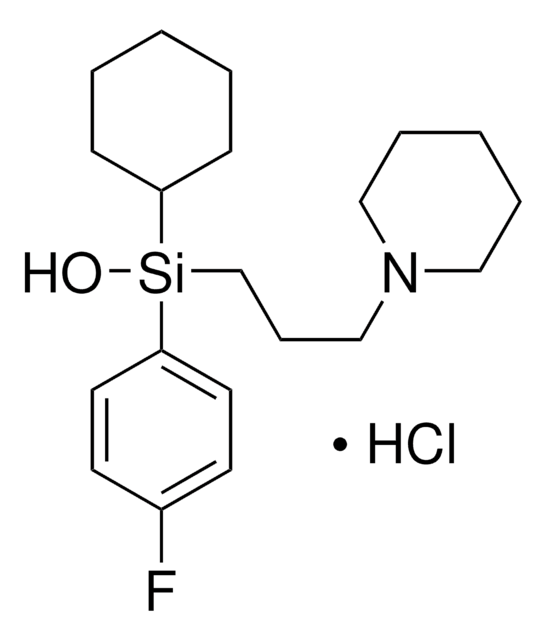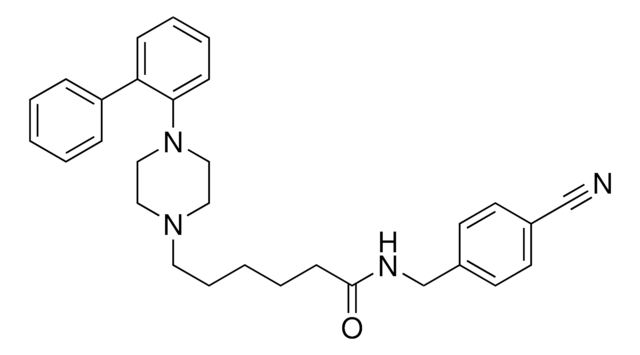SML0435
AF-DX 116
≥98% (HPLC)
Sinónimos:
11-[[2-[(Diethylamino)methyl]-1-piperidinyl]acetyl]-5,1 1-dihydro-6H-pyrido[2,3-b][1,4]benzodiazepin-6-one, Otenzepad
About This Item
Productos recomendados
assay
≥98% (HPLC)
form
powder
drug control
regulated under CDSA - not available from Sigma-Aldrich Canada
color
white to beige
solubility
DMSO: 5 mg/mL (clear solution; warmed)
storage temp.
room temp
SMILES string
CCN(CC)CC1CCCCN1CC(=O)N2c3ccccc3C(=O)Nc4cccnc24
InChI
1S/C24H31N5O2/c1-3-27(4-2)16-18-10-7-8-15-28(18)17-22(30)29-21-13-6-5-11-19(21)24(31)26-20-12-9-14-25-23(20)29/h5-6,9,11-14,18H,3-4,7-8,10,15-17H2,1-2H3,(H,26,31)
InChI key
UBRKDAVQCKZSPO-UHFFFAOYSA-N
Application
Biochem/physiol Actions
Features and Benefits
signalword
Warning
hcodes
Hazard Classifications
Acute Tox. 4 Oral
Storage Class
11 - Combustible Solids
wgk_germany
WGK 3
flash_point_f
Not applicable
flash_point_c
Not applicable
Certificados de análisis (COA)
Busque Certificados de análisis (COA) introduciendo el número de lote del producto. Los números de lote se encuentran en la etiqueta del producto después de las palabras «Lot» o «Batch»
¿Ya tiene este producto?
Encuentre la documentación para los productos que ha comprado recientemente en la Biblioteca de documentos.
Nuestro equipo de científicos tiene experiencia en todas las áreas de investigación: Ciencias de la vida, Ciencia de los materiales, Síntesis química, Cromatografía, Analítica y muchas otras.
Póngase en contacto con el Servicio técnico









